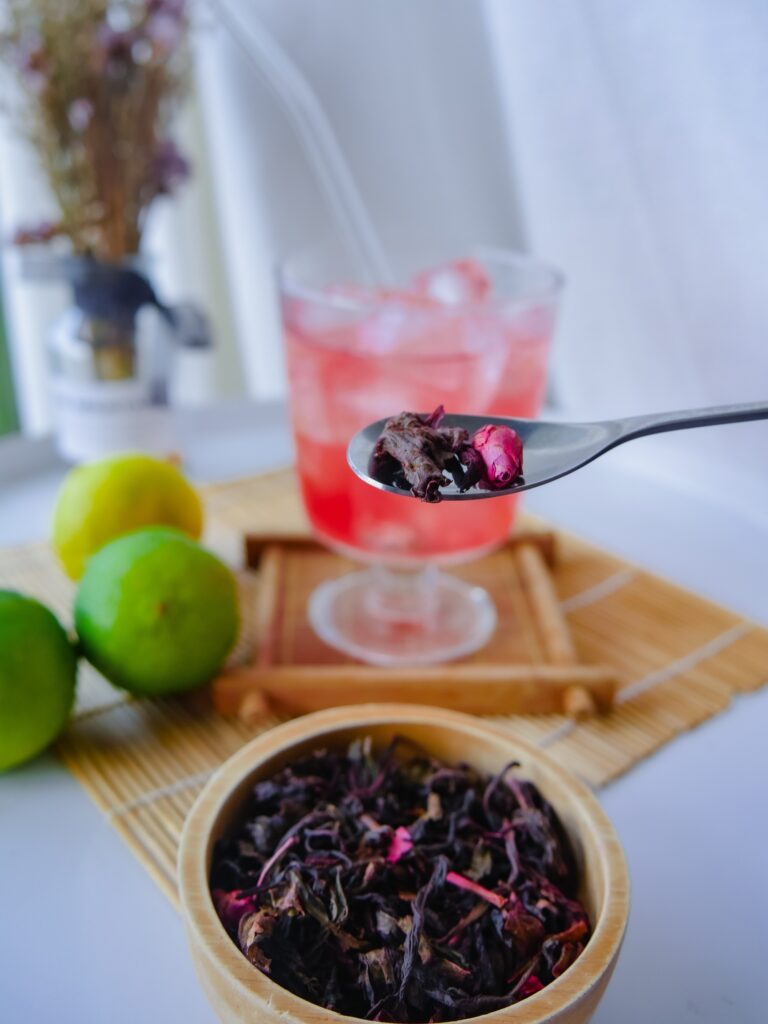
Rose tea, a delicate and aromatic beverage, has captivated tea enthusiasts for centuries with its enchanting flavor and myriad health benefits. This comprehensive exploration delves into the world of rose tea, unraveling its rich history, diverse varieties, and significant cultural impact.
A Blooming History: The Origins of Rose Tea
The story of rose tea is as old as the cultivation of roses themselves. Originating in ancient Persia, the use of roses in beverages can be traced back to the 5th century BCE. The Persians, renowned for their gardens and horticultural expertise, were among the first to recognize the potential of rose petals in creating a fragrant and healthful drink.
As trade routes expanded, the practice of infusing rose petals spread across Asia and Europe. In China, rose tea gained popularity during the Han Dynasty (206 BCE – 220 CE), where it was prized for its medicinal properties. The Ottoman Empire, too, embraced rose tea, incorporating it into their rich culinary and medicinal traditions.
A Bouquet of Flavors: Varieties of Rose Tea
Rose tea comes in a diverse array of varieties, each offering a unique flavor profile and set of benefits:
- Pure Rose Petal Tea: Made solely from dried rose petals, this variety offers the most intense floral flavor and aroma.
- Rose-Scented Black Tea: Black tea leaves scented with rose essence, providing a robust flavor with floral notes.
- Rose Hip Tea: Brewed from the fruit of the rose plant, this variety is tart and rich in Vitamin C.
- Rose Green Tea: A delicate blend of green tea leaves and rose petals, combining the health benefits of both.
- Rose White Tea: A subtle and refined blend, pairing the delicate flavors of white tea with rose petals.
The Art of Brewing: Preparing the Perfect Cup
Crafting the ideal cup of rose tea requires attention to detail and a gentle touch. Follow these steps for a sublime tea experience:
- Water Temperature: Heat water to about 190°F (88°C). Boiling water can scorch the delicate rose petals, resulting in a bitter taste.
- Measurement: Use 1-2 teaspoons of dried rose petals or a rose tea blend per cup of water.
- Steeping Time: Allow the tea to steep for 5-7 minutes. The longer the steeping time, the stronger the flavor.
- Straining: Use a fine-mesh strainer to remove the petals, ensuring a smooth drinking experience.
- Enhancements: Consider adding a touch of honey or a slice of lemon to complement the floral notes.
Blossoming Health: The Benefits of Rose Tea
Rose tea is not just a treat for the senses; it’s a boon for health. Scientific research has uncovered numerous benefits associated with this fragrant brew:
Stress Reduction
Rose tea contains compounds that interact with the body’s stress response system. A study published in the Journal of Physiological Anthropology found that the aroma of roses can decrease cortisol levels, promoting relaxation and reducing stress.
Digestive Aid
The gentle properties of rose tea make it an excellent digestive aid. It can help soothe an upset stomach, reduce bloating, and alleviate mild constipation. The tea’s mild diuretic effect also supports kidney function and helps flush out toxins.
Skin Health
Rich in vitamin C and antioxidants, rose tea contributes to skin health. These compounds help fight free radicals, potentially reducing the signs of aging. A study in the International Journal of Molecular Sciences highlighted the potential of rose extracts in protecting skin cells from UV damage.
Immune System Boost
The high vitamin C content in rose tea, particularly in rose hip varieties, provides significant support to the immune system. Regular consumption may help ward off common colds and flu.
Antioxidant Powerhouse
Rose petals are packed with polyphenols and anthocyanins, powerful antioxidants that combat oxidative stress in the body. Research published in the Journal of Food Science demonstrated that rose petal extract exhibits strong antioxidant activity, potentially reducing the risk of chronic diseases.
Cultural Significance: Rose Tea Across the Globe
Rose tea holds a special place in various cultures, often transcending its role as a mere beverage:
- In Iran, rose tea is a symbol of love and affection, often served to welcome guests.
- Chinese traditional medicine incorporates rose tea to balance the body’s energy and promote overall well-being.
- In India, rose petals are used in Ayurvedic practices, with rose tea believed to cool the body and soothe the mind.
- Turkish culture celebrates the rose in many forms, with rose tea being a staple in social gatherings and ceremonies.
Embracing the Rose Tea Experience
Rose tea stands as a testament to nature’s ability to provide both pleasure and health benefits in a single cup. Its journey from ancient Persian gardens to modern teacups is a fascinating tale of cultural exchange and scientific discovery.
For tea enthusiasts seeking a beverage that delights the senses while offering numerous health benefits, rose tea presents an enticing option. Whether sipped for its stress-reducing properties, enjoyed for its digestive benefits, or savored for its rich cultural heritage, rose tea offers a multifaceted experience that goes far beyond its delicate flavor.
As you explore the world of rose tea, remember that each cup carries with it centuries of tradition and a bouquet of health benefits. So, the next time you seek a moment of tranquility or a boost to your well-being, consider reaching for a cup of rose tea – a true infusion of nature’s grace and wisdom.






